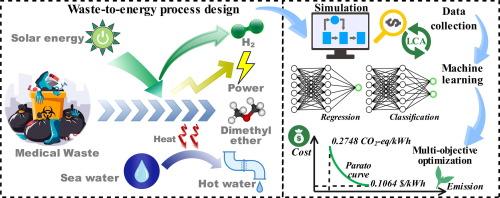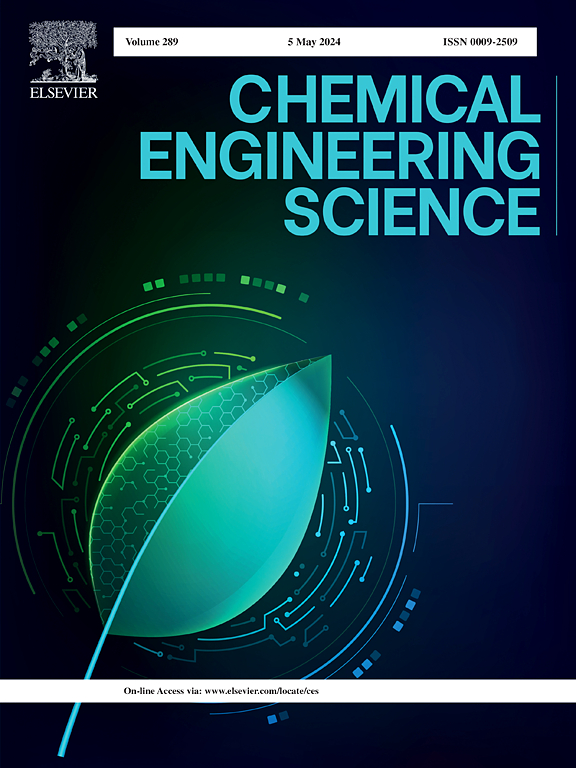Turning waste into energy through a solar-powered multi-generation system with novel machine learning-based life cycle optimization
IF 4.1
2区 工程技术
Q2 ENGINEERING, CHEMICAL
引用次数: 0
Abstract
This study presents an innovative solar-powered multi-generation system aiming at converting waste into diverse forms of energy, including dimethyl ether (DME), hydrogen, power, and heat. Concurrently, a systematic and computationally efficient optimization framework is developed to unlock the maximum potential of this complex waste-to-energy system. The system integrates plasma gasification, DME synthesis, combining heat and power generation, solar-driven electrolysis and desalination. Life cycle assessment and techno-economic assessment have been implemented for system comprehensive optimization which is formulated as a large-scale nonlinear program (NLP) model. Based on rigorous process simulation results, a machine learning-based framework is proposed to accelerate optimization. Using medical waste treatment as a case study, the solution of the NLP problem reveals optimal levelized costs per kWh energy range from $0.1064 to $0.1304, with total life cycle carbon emissions ranging from 0.2748 to 0.5083 kg CO2-eq/kWh energy. The findings demonstrate the proposed system’s environmental sustainability and economic viability.


求助全文
约1分钟内获得全文
求助全文
来源期刊

Chemical Engineering Science
工程技术-工程:化工
CiteScore
7.50
自引率
8.50%
发文量
1025
审稿时长
50 days
期刊介绍:
Chemical engineering enables the transformation of natural resources and energy into useful products for society. It draws on and applies natural sciences, mathematics and economics, and has developed fundamental engineering science that underpins the discipline.
Chemical Engineering Science (CES) has been publishing papers on the fundamentals of chemical engineering since 1951. CES is the platform where the most significant advances in the discipline have ever since been published. Chemical Engineering Science has accompanied and sustained chemical engineering through its development into the vibrant and broad scientific discipline it is today.
 求助内容:
求助内容: 应助结果提醒方式:
应助结果提醒方式:


